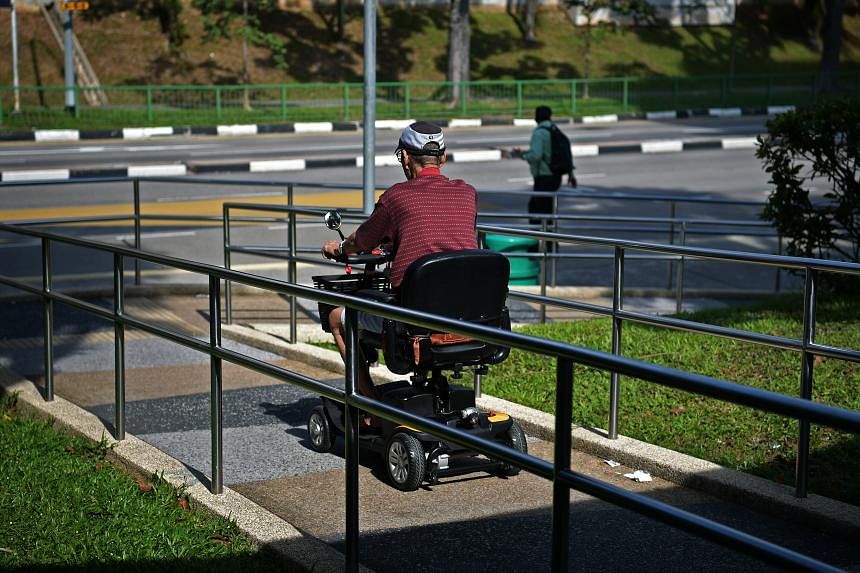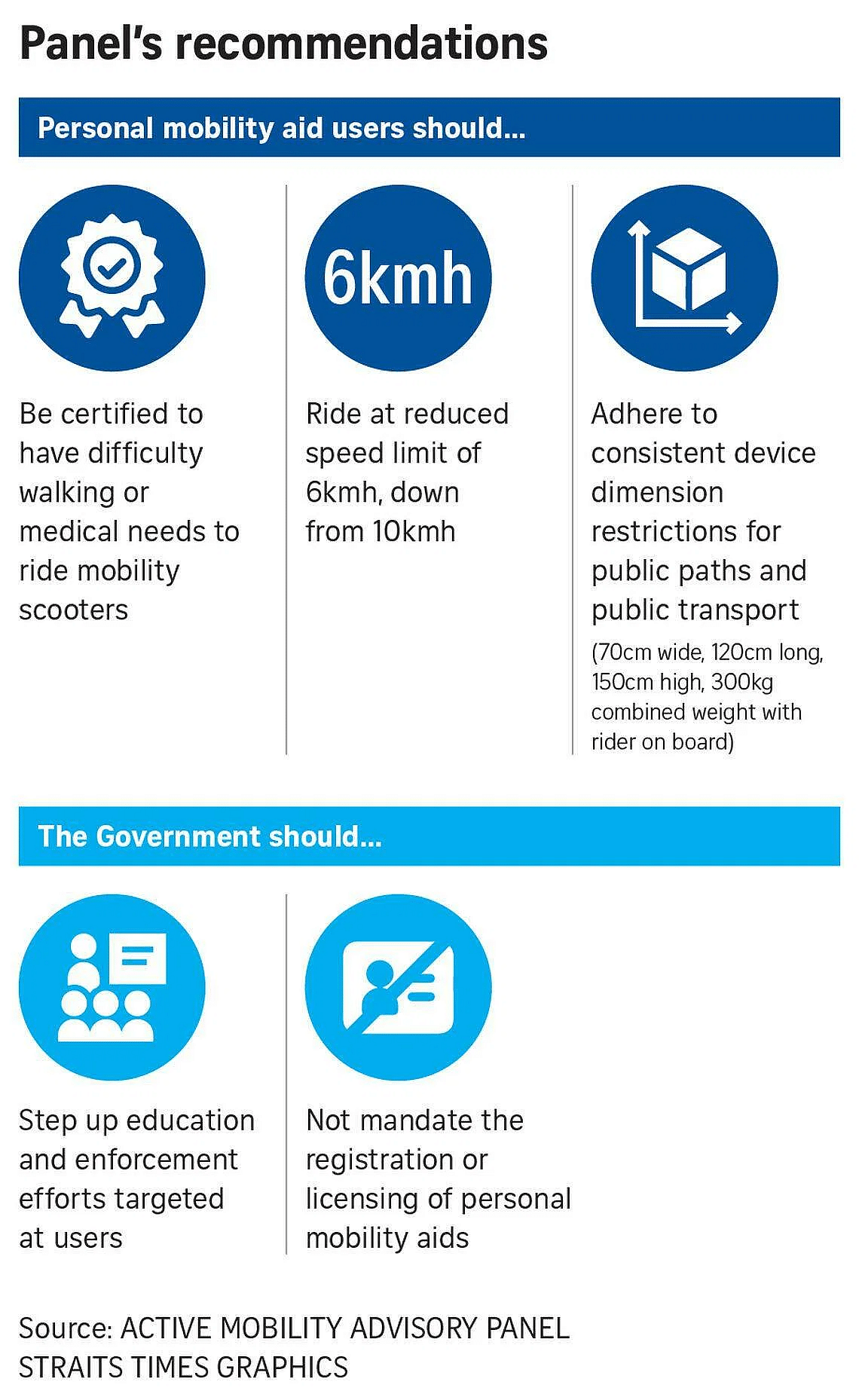Proposal to restrict mobility scooters to those with medical needs will weed out misuse, say users

SINGAPORE - A review panel’s proposal to restrict mobility scooters to users with health conditions or certified walking difficulties will ensure that these devices are used only by those who truly need them, and not by able-bodied people who ride them out of convenience, said users.
In a proposal to the Ministry of Transport on Dec 14, the Active Mobility Advisory Panel (Amap) also recommended that the speed limit of all motorised personal mobility aids (PMAs) be lowered from 10kmh to 6kmh. PMAs, including motorised wheelchairs, are generally bigger and heavier than devices such as bicycles, so travelling at 10kmh may endanger other path users, said the panel.
Some PMA users who spoke to The Straits Times responded positively to the panel’s proposal for mobility scooter users to provide certification of a medical need for the use of the device.
Others, however, had reservations about the suggested speed limit.
Miss Tan Li Li, who has used a motorised wheelchair for 34 years due to polio, supports the panel’s recommendation for medical certification, as she finds herself frequently giving way to able-bodied mobility scooter users who speed recklessly on footpaths and in MRT stations.
“I know that they can actually walk, because they can stand up from their PMAs. So why are they using these devices in the first place, and taking space away from users who are really disabled?” the 52-year-old book binder asked in Mandarin.
Mr Adam Heng, 61, who has been using a mobility scooter since he injured his hip bone in October 2022, is in favour of the recommendation, citing encounters with people abusing the privilege of using a PMA.
“Some share the PMAs with their families, letting their children ride these devices on the pavement. Some also use the PMAs to do food deliveries,” said the cleaning supervisor.
He added: “When I asked why they were riding the PMAs, these riders said they were too lazy to ride their bicycles as they did not want to wear helmets.”
Even so, Mr Heng raised concerns about obtaining a doctor’s memo, since it could be “a bit troublesome” to go to the clinic or hospital.
Weighing in on the lower proposed speed limit, mobility scooter user Jane Yeo, 60, said the suggested cap of 6kmh is too slow, especially in an emergency.
“Even my five-year-old grandson can walk faster than this... It makes me feel very old,” the administrative executive added.
Madam Yeo noted that she takes the first train at about 5.30am to get to work, to avoid the rush-hour crowd, and the proposed speed limit would require her to leave her house earlier.
Members of the public such as Mr Kenneth Ng, 20, welcomed the proposed changes.
The part-time employee at a cafe said the proposal for medical certification would prevent the misuse of mobility scooters, since it provides a “clear segregation between those who need them and those who want them”.
The proposed speed limit would also make it safer for other footpath users, since there is a lower chance of PMAs hitting people at slower speeds, said Mr Ng.
Mr Abhimanyau Pal, chief executive of SPD, a charity helping people with disabilities, said Amap’s recommendations will help to ensure that the infrastructure can “adequately support” people with disabilities, and “not those who use them as an alternative mode of transport”.
Given the country’s ageing population, Mr Pal expects more people to rely on PMAs to remain active in the community in the coming years.
Speaking to the media on Dec 14, Ms Florence Cheong, who represents the Singapore Association of Occupational Therapists, said PMAs are essential to improving the quality of life for people with medical conditions as they can travel longer distances.
Ms Cheong added that Amap’s proposals will benefit PMA users in the long run, as footpaths will be less crowded and everyone will have a safer commute.
Asked about the impact of the proposed speed limit on food delivery riders using PMAs, Amap chairman and Senior Parliamentary Secretary for Transport Baey Yam Keng said it will make it safer for these riders to go on footpaths and ride in void decks.
Food delivery platforms already allow riders with disabilities more time to complete delivery orders, and members of the public tend to be more accommodating of such riders, he said.
Acting Transport Minister Chee Hong Tat said his ministry will go through the panel’s recommendations before responding with its decision.

- Additional reporting by Tan Wei Xuan
Win a free trip on us!
Subscribe to ST One Digital for a chance to win up to $1,800 in Klook vouchers
ST One Digital - Personal Access
$9.90/month
No contract
Participate in the Klook Lucky Draw
Unlock these benefits
All subscriber-only content on ST app and straitstimes.com
Easy access any time via ST app on 1 mobile device
E-paper with 2-week archive so you won't miss out on content that matters to you
Join ST's WhatsApp Channel and get the latest news and must-reads.









No comments:
Post a Comment